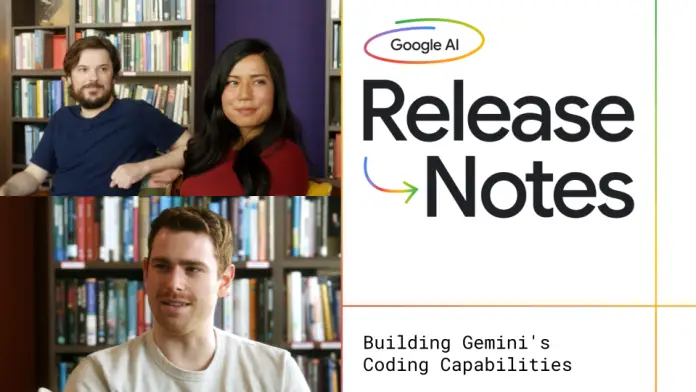In a fast-evolving tech landscape, Google’s latest podcast episode dives into the innovative world of AI programming, offering small business owners crucial insights into the future of coding. The episode of Google AI: Release Notes features a conversation with Connie Fan and Danny Tarlow, the product and research leads behind Gemini, one of the leading AI coding models.
For small business owners looking to streamline their operations, understanding the capabilities of tools like Gemini can unlock new efficiencies and innovations. "Vibe coding" is a term discussed in the episode, referring to an AI-driven method that emphasizes intuition and flexibility in code development. This emerging approach empowers programmers to focus more on the creative aspects of coding rather than just syntax and structure, potentially benefiting businesses by enhancing developer productivity and creativity.
Small business owners often juggle multiple roles, making efficiency paramount. The Gemini team’s early goals centered around making coding more accessible and less rigid, which aligns well with the needs of smaller enterprises that may not have large IT departments. As these businesses strive to innovate and remain competitive, understanding how AI can reshape their approach to coding is essential.
While listening to the podcast, available on Apple Podcasts and Spotify, small business owners can glean practical applications for their operations. For instance, integrating AI-based coding solutions like Gemini can reduce development time, minimize errors, and bring products to market faster. This technology can also facilitate better collaboration among team members, as it encourages an easier onboarding process for those new to programming.
Nonetheless, the integration of AI into coding does come with its own set of challenges. Business leaders must consider the initial investment in the technology and the potential learning curve involved for their teams. As AI continues to evolve, it may also raise questions about job displacement and the future of traditional programming roles. Addressing these concerns proactively can help mitigate resistance among employees who may fear that AI will replace their jobs rather than enhance their capabilities.
Moreover, relying heavily on AI models could lead to over-dependence on technology, which might hinder the human element in problem-solving and creativity. Small business owners will want to strike a balance between leveraging AI tools and ensuring that their teams retain critical thinking and ingenuity in their work. As highlighted by Fan and Tarlow, the future of programming is intertwined with AI, and navigating this evolution requires awareness and strategy.
The insights shared in the Google AI: Release Notes podcast could prove invaluable for small business leaders keen on optimizing their coding practices. The discussion opens the door to exploring AI not just as a tool, but as a partner in driving innovation. Engaging with such advanced technology may change the landscape of how small businesses operate, making it essential for owners to stay informed and adaptable.
As small business owners consider the integration of AI in their strategies, they should keep an eye on how programming evolves in this context. By staying attuned to conversations like those featured in this podcast, they can position themselves ahead of the curve, ensuring they harness the potential of AI without losing sight of the human creativity that drives their enterprises.
For more detailed insights from the conversation between Logan Kilpatrick and the Gemini leads, the full episode is available here. Engaging with this material can serve as a pivotal resource for those determined to leverage AI in enhancing their operations.
Image Via Gemini



